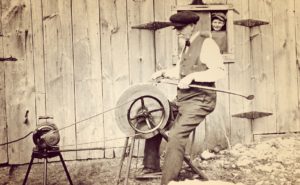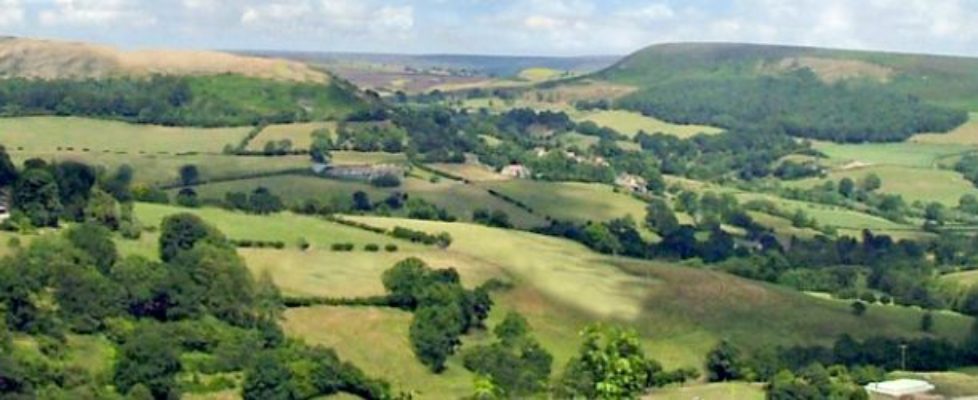Appreciative Inquiry case study – Imagine Ryedale, part 1
 Following on from our Appreciative Inquiry intro, read the first of our case studies, illustrating how the method can be used out ‘in the field’, starting with a rural area…
Following on from our Appreciative Inquiry intro, read the first of our case studies, illustrating how the method can be used out ‘in the field’, starting with a rural area…
Ryedale is a mainly rural district in North Yorkshire. We started by working with a core group of a dozen local activists and council officers. Over two one-day workshops we developed a set of appreciative questions, using the week between the two workshops to try out an initial set of questions. Here is the final set:
1a What do you enjoy most about Ryedale?
1b Why do you feel that way?
2a What does belonging to a group or community mean to you?
2b Can you describe an experience of such a group (community), and how this affected you?
3a If you had a magic wand, what 3 things would you change in the area?
3b Who do you think could help?
4 Describe what it is like in Ryedale in 10 years time, when these changes have happened
5 Is there a piece of music or image that sums up Ryedale for you?
The core group, with support from the local authority, then got the questions used in conversations, meetings, classrooms and even on a specially set-up phone-in line.
Appreciative Conversations
This visioning process had begun without a set agenda. People came to the conver sations with their own news, views and “axes to grind”. The questions were carefully worded so that all this could emerge through people’s stories, but in as constructive a way as possible. For many, the method represented a novel, fun and energising way to take part in a consultation. One participant said, “When we get together we normally don’t talk like this – it was very refreshing.”
sations with their own news, views and “axes to grind”. The questions were carefully worded so that all this could emerge through people’s stories, but in as constructive a way as possible. For many, the method represented a novel, fun and energising way to take part in a consultation. One participant said, “When we get together we normally don’t talk like this – it was very refreshing.”
Provocative Propositions
The next stage involved sorting through the vast amount of material that the conversations had generated. Each conversation (whether it took place in an AGM or around somebody’s kitchen table) was noted on an interview script. It took two further one-day workshops with the core group to read four hundred and thirty scripts then sort through and draw out the recurring themes and issues. This carefully facilitated process culminated in the drafting of “provocative propositions”, or vision statements around six identified themes. As far as possible these propositions, which describe the desired future in the present tense, incorporated the exact words of the people who had taken part.
For example, the core group’s analysis of the scripts identified the importance of a proposition that focussed on the type of community people wanted to live in. Phrases about what people wanted to change: “We need more opportunities to express ourselves” and what they wanted to maintain: “Ryedale is like a living encyclopaedia”, contributed to a provocative proposition that said:
Ryedale has vibrant communities where everyone is respected; where all generations have opportunities to express themselves; where diversity is welcomed and encouraged.
Likewise, many of the themes and issues that emerged could have come under the heading of “sustainable development” in local authority jargon, but because none of the people involved had actually used those words, the core group felt that it was important they were not in any of the final propositions.
Presenting Back to the Community
With the first draft of the Provocative Propositions written, the next stage involved presenting them back to those who had been involved in the process. This was the chance to review the propositions before they were formally incorporated into the community plan, and involved a number of small workshops and meetings with different stakeholder groups where each proposition was checked against a simple set of criteria of “Feasibility”, “Desirability” and whether they were “Happening Already”. The Community Plan says:
 This future can be sustained if the changes have been made to keep Ryedale healthy, vibrant and thriving. This vision, made up of the six themes above, is the backdrop to all that we do through the Ryedale Strategic Partnership. These six themes set out a clear direction by defining the long-term priorities of all those with a stake in Ryedale, and address the major concerns for the future.
This future can be sustained if the changes have been made to keep Ryedale healthy, vibrant and thriving. This vision, made up of the six themes above, is the backdrop to all that we do through the Ryedale Strategic Partnership. These six themes set out a clear direction by defining the long-term priorities of all those with a stake in Ryedale, and address the major concerns for the future.
At the end of the second workshop for developing the “provocative propositions “, one member of the core group summed up the day saying, “I‘m left with a sense of hope that a vision can be dealt with strategically.” In the words of Clare Slater from Ryedale District Council, the vision was ”a contract drawn up between the council and the community“, against which the decisions about health, transport, education and housing can be checked.
In part 2 I’ll explain how things panned out after that.


Appreciative Inquiry case study - Imagine Ryedale, part 2 - Rhizome
December 19, 2017 @ 3:11 pm
[…] project described in part 1 took place in 2002/2003. In 2008 I visited Ryedale to talk to some of the people who had been […]